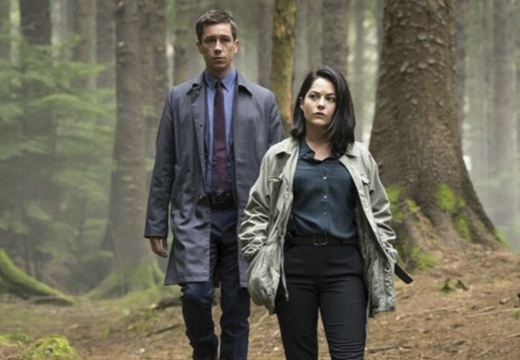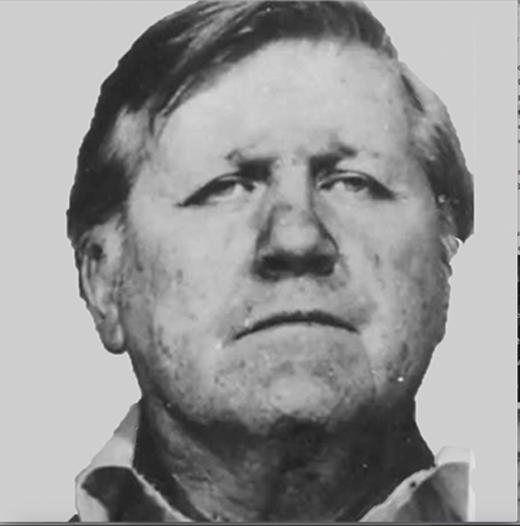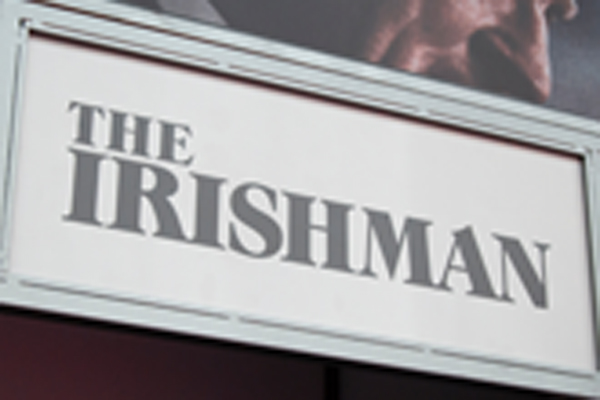DUBLIN MURDERS AIRING ON STARZ NETWORK
A few years back, author Tana French told Irish America about her unusual journey from under-employed actress to “First Lady of Irish Crime.”
“I needed a day job,” said French, an American-born longtime resident of Dublin. French ended up working on an archeological dig when she was bowled over by a disturbing thought.
“What if three children went in to play (in the site) and only one came out?”
Those were the humble beginnings of what would become French’s riveting, best-selling debut In the Woods, which won an Edgar Award for best debut novel.
This fall, the Starz network will begin broadcasting an eight-episode series called Dublin Murders, based on French’s first two books.

Set during the height of the Celtic Tiger financial boom of the early 2000s, Dublin Murders revolves around French’s detectives Rob Reilly and Cassie Maddox.
When they begin to look into a child’s murder, they discover a tense community caught between old and new Ireland. A local teenage girl has been found dead in the middle of an archeological site. Developers had been planning to built a new motorway through the area.
A neighboring estate, Knocknaree, missed out on much of the Celtic Tiger boom. And this is the not the first time a local child has been lost – two decades earlier, three children went missing, and only one came back alive.
Dublin Murders stars Killian Scott as Rob Reilly. Scott has appeared on the RTÉ TV show Love/Hate, as well as movies such as Calvary, ‘71, and The Commuter. Cassie Maddox, meanwhile, is portrayed by Tony Award-nominee Sarah Greene, who has appeared in Showtime’s Penny Dreadful and the Irish Famine epic Black ‘47. Conleth Hill, Lea McNamara, and Eugene O’Hare also appear in Dublin Murders, which begins airing on the Starz network in November.
℘℘℘
WHO WAS “THE IRISHMAN”?
The mysteries surrounding the disappearance of longtime organized labor leader Jimmy Hoffa were so numerous, and eventually so outlandish, they became a source of dark comedy in many movies and TV shows. So much so that acclaimed singer Aimee Mann once actually wrote a song entitled “Jimmy Hoffa Jokes.”
There may be one or two such gags in Martin Scorsese’s much anticipated new movie The Irishman, which prominently features Hoffa, played by Hollywood legend Al Pacino.
But Hoffa is not the Irishman of the title. Begging the question – who is?
His name is Frank Sheeran. He was born outside of Philadelphia, in 1920, to Irish-American parents Mary and Tom. He enlisted in the army in 1941, before the attack on Pearl Harbor, serving in Italy, France, and Germany. And though he later described some rather horrific experiences during the war, so far, Sheeran’s life hardly seems to be the stuff of a three-hour Martin Scorsese movie. It may well have been during the war that Sheeran (played by Robert DeNiro) developed a rather indifferent attitude toward human life. After the war, he worked as truck driver, and married an Irish immigrant named Mary. They had three children together before divorcing in 1968. By then, he was rubbing shoulders with Italian-American mobsters, who sensed a useful, violent streak in Sheeran. Underworld figures like Philly kingpin Angelo Bruno (played by Harvey Keitel in The Irishman film) and Pennsylvania mob boss Russell Bufalino (played by Joe Pesci) recruited Sheeran for some of the more gruesome work that’s called for in the world of organized crime. Sheeran is even believed to be the trigger man in one of the most high-profile gangland slayings in mob history – the 1972 murder of “Crazy” Joe Gallo (played by comedian Sebastian Maniscalco) at Umbertos’ Clam House in Manhattan’s Little Italy.

It was in 1975 that Sheeran, who allegedly had a very successful career “painting houses,” a code phrase for killing people, (maybe) pulled off his most audacious job. He had worked regularly with Teamster’s union boss Jimmy Hoffa, who himself had many ties to the underworld. This led to many lucrative opportunities – that is, until those underworld figures started to turn on him. Hoffa also had highly-publicized battles with Bobby Kennedy, who waged a high-profile war on organized crime, particularly as it influenced unions, and other elements of the labor movement.
According to Charles Brandt’s book I Heard You Paint Houses: Frank “The Irishman” Sheeran and Closing the Case on Jimmy Hoffa (the basis for Scorsese’s movie), Sheeran met up with Hoffa on the evening of July 30, 1975. They were both driven by an associate named Chuckie O’Brien to a house in Detroit, where a topic of discussion was likely to be Hoffa’s ongoing conflict with numerous mob figures. In the end, Sheeran shot Hoffa, whose body never turned up. Thus began decades of dark comedy about corpses buried underneath Giants Stadium in the swamps of New Jersey.
For what it’s worth, law enforcement has never managed to definitively tie Sheeran – who died in 2003 – to Hoffa’s disappearance.
The irony is that Sheeran’s father, Thomas Francis Sheeran Jr., was, in fact, a house painter. Scorsese’s movie is on Netflix. ♦


All these morbid stories about Irishmen, both here and on Irish Central – endless foul images of men – murderers, women and child molesters – monsters – I object.
Cheer up! You have a duty to lead, not just to follow perverts.
Pat
Why isn’t this called “The Italians”?